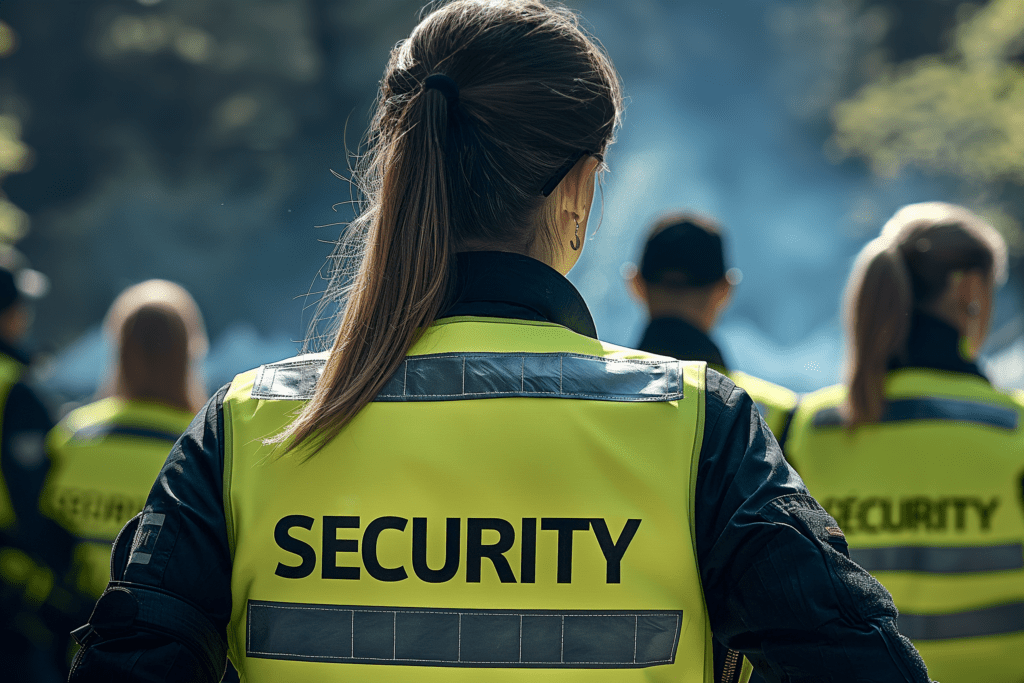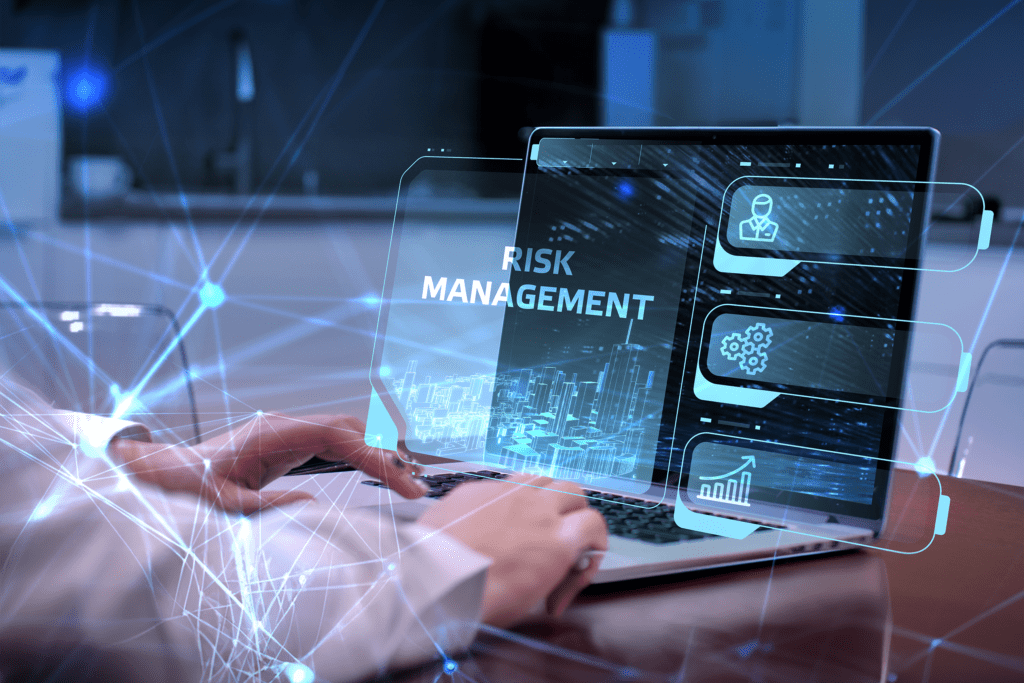Read on to find out more.
Education and learning are central to the ongoing professionalisation of the security sector. As the industry continues to evolve, practitioners increasingly draw on a combination of formal qualifications, professional training, and practical experience to develop their capability and progress their careers.
By presenting learning pathways aligned to national qualification frameworks,this guide supports informed decision-making and reflects the flexible, varied, and evolving nature of careers in security, while reinforcing the Institute’s commitment to raising standards and supporting professional development across the industry.
This framework is not intended to represent a single, linear career ladder. Progression in security is shaped by an individual’s skills, experience, responsibilities, and learning, and entry points may vary depending on prior knowledge and professional background. Learners may begin at different levels, and earlier levels are not always prerequisites for progression.
Learning pathways describe how qualifications, training, and professional development opportunities are structured and aligned by level. They help learners and employers understand the complexity of learning, progression options, and how different types of education and training relate to one another.
Career routes, by contrast, reflect the roles, responsibilities, and job progression individuals experience in practice. Career routes are shaped by experience, organisational context, and opportunity, and do not always follow a fixed or linear pattern.
This page focuses on learning pathways rather than prescribing career routes. It is intended to support informed decisions about education and professional development, recognising that individuals may enter, progress, and specialise in the security profession in different ways.
National Vocational Qualifications (NVQs) are competence-based qualifications that assess an individual’s ability to perform effectively in the workplace. Unlike academic or knowledge-based qualifications, NVQs focus on demonstrated occupational competence, rather than taught learning hours or examinations.
NVQs are aligned to the same national level descriptors as other regulated qualifications, meaning they reflect the complexity of work and responsibility, not the size or academic depth of study.
Important: NVQs do not extend beyond Level 5. Levels 6–8 are typically associated with academic or professional qualifications rather than workplace competence assessment alone.
An NVQ demonstrates what a person can do in their job, while other qualifications may demonstrate what a person knows, understands, or can analyse
Award – Small qualification focused on specific skills or knowledge.
Certificate – Medium-sized qualification with broader coverage.
Diploma – Large qualification providing comprehensive learning and assessment.
These distinctions are based on guided learning hours and credit value, not the qualification level itself.
Progression between qualifications, including movement into academic degrees, is not automatic and depends on:
Some professional qualifications offered by the Security Institute may support credit transfer or progression into academic programmes, such as the MSc in International Security and Risk Management, subject to university policies. This is conducted via a rigorous Recognised Prior Learning (RPL) process.

The qualification levels shown below align with the Regulated Qualifications Framework (RQF) and are benchmarked against national education frameworks.
They indicate the complexity of learning, not the size, duration, or academic equivalence of a qualification.
Qualifications at the same level may vary significantly in:
Level 1 qualifications introduce learners to basic knowledge and skills, often supporting entry into learning, training, or employment.
They Focus on:
Example question for assessment at Level 1: Classify each of the items listed in the table below as being either an example of convergence or enterprise security risk management.
Types of Security Courses


Level 2 qualifications build on foundational learning and support the development of practical skills and applied knowledge.
Learners at Level 2 are typically able to:Types of Security Courses
Level 3 qualifications develop advanced knowledge and practical skills, preparing learners for skilled roles or further education.
At this level, learners are expected to:
Level 3 qualifications are often required for progression into higher education or professional training
Example question for assessment at Level 3: Describe the process of conducting a dynamic risk assessment during an incident. Provide an example of when this type of assessment would be necessary.
Examples include:


Level 4 qualifications develop specialist knowledge and skills beyond Level 3 and support progression into technical, professional, or supervisory roles.
Learners working at Level 4:
Level 4 qualifications are benchmarked at the same level of complexity as early stages of higher education, but they are not directly equivalent to a specific year of a bachelor’s degree, as they typically involve fewer learning hours and a different assessment structure.
Example question for assessment at Level 4: Describe how a security manager can develop and maintain a strong security culture within an organisation.
Examples include:
Level 5 qualifications build on prior learning and develop deeper technical knowledge, analytical skills, and professional competence.
Learners at Level 5 are typically:
Example question for assessment at Level 5: Critically evaluate how organisational leadership influences the development and long‑term effectiveness of security strategy in a large organisation.
Level 5 qualifications are not equivalent to a specific year of a bachelor’s degree, but may align more closely with the first year of a foundation degree in terms of academic demand, while remaining distinct in structure and delivery.
Examples include:


Level 6 qualifications represent advanced professional learning and are designed for individuals operating in senior, specialist, or leadership roles.
Learners working at Level 6:
Level 6 qualifications are benchmarked at the same level of complexity as a bachelor’s degree, but differ in credit volume, duration, and assessment requirements.
They do not automatically confer a full bachelor’s degree, though they may support progression into academic study through credit transfer or recognition of prior learning (RPL), subject to institutional policies.
Example question for assessment at Level 6: Assess how geopolitical instability and transnational threats influence strategic security planning for multinational organisations operating in high‑risk regions.
Types of Security Courses
Level 7 qualifications reflect highly advanced learning and are intended for senior professionals, strategic leaders, and subject matter experts.
At this level, learners are expected to:
Level 7 qualifications are aligned to the same level of academic complexity as a master’s degree, but they are not the same as a full master’s qualification, which typically requires a larger credit volume and extended assessment.
Level 7 qualifications may support progression to postgraduate study through credit transfer or RPL, depending on university requirements.
Example question for assessment at Level 7: Critically assess the trade‑offs between effectiveness and civil liberties in contemporary counter‑terrorism strategies. In your response, compare models (e.g., Prevent, community‑policing, intelligence‑led disruption), evaluate evidentiary standards, and propose rights‑preserving safeguards.
Examples include:


Level 8 qualifications represent the highest level of learning and are associated with doctoral-level study and advanced professional expertise.
Learners working at Level 8:
Level 8 qualifications are typically research-based and involve sustained, original investigation.
Example question for assessment at Level 8: Develop and empirically test a mid‑range theory that explains how security culture diffuses across federated organisations with heterogeneous risk appetites.
Specify constructs, hypothesised mechanisms (e.g. social learning, coercive/isomorphic pressures), and a mixed‑methods strategy for falsification.
Types of Security Courses